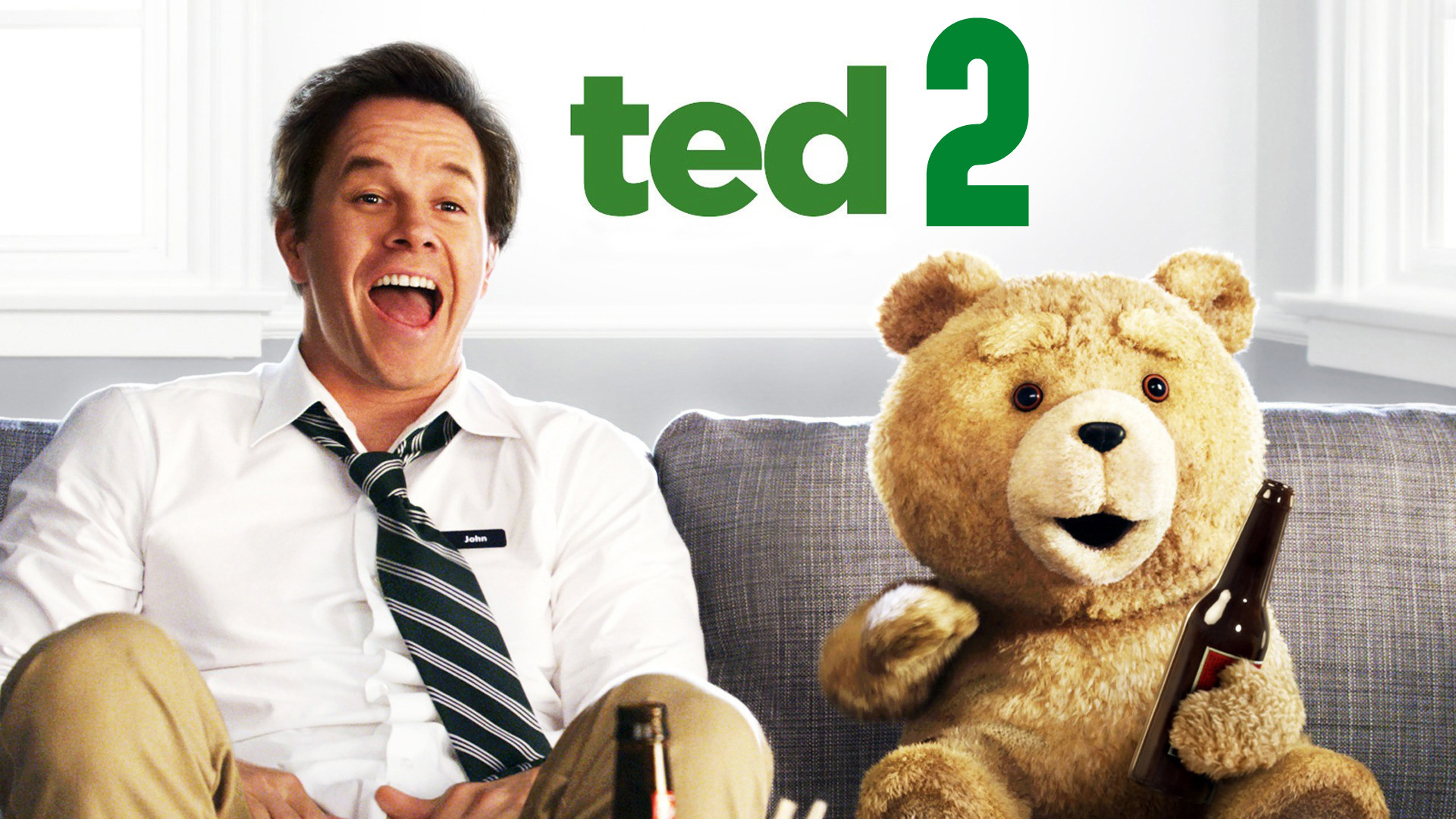Ted 2
Posted on June 25, 2015 at 5:22 pm
“Subtle” is not a word that naturally comes to mind for a movie that features a bong in the shape of male genitalia (which is more powerful — the longing for weed or the ew-factor of a straight guy who does not want to appear to be sucking on a dong-shaped bong)? Or for a movie that shows us a fertility clinic accident drenching a character with an output of said body part, followed by a joke insulting African-American men and those with a genetic ailment. A trifecta!
The raunch-fest “Ted 2” does indeed rely on gross-out, juvenile, misogynistic, homophobic, racist, marijuana-philic, oh-no-they-didn’t humor, though much of it is more humor-ish, fake-funny, outrageousness pretending to be comedy. It spends most of its running time, too long at almost two hours, on jokes about bodily parts and functions, drugs, the joys of slackerdom, and pratfalls, which I admit pretty much sums up my least favorite kind of comedy. So if the two examples above strike you as hilarious, kick my rating up a couple of notches and go enjoy yourself.
The parts I did enjoy were the low-key, random, off-beat moments, especially in the performances of Mark Wahlberg and, briefly Liam Neeson. The gimmick may be the talking teddy bear, but the star of the film in every way is Wahlberg, who in the midst of a slob comedy gives a performance that is so precise and witty it is close to adorable.

“Ted” was an amiably crude film about a boy named Johnny who wished that his teddy bear would come alive, like Pinocchio, or the Nutcracker. Ted does come to life and decades later, John (Wahlberg) and Ted (voiced by writer/director Seth MacFarlane), are happily still best friends, enjoying the pleasures of adulthood (sex, porn, weed, beer) while happily holding on to childhood when it comes to thunderstorms and responsibility. The happy ending of course has to be unraveled for a sequel, so we begin with John now divorced from the long-time girlfriend who gently suggested he might want to grow up, and Ted getting married to his girlfriend, Tami-Lynn (Jessica Barth). After a great musical production number right out of a Busby Berkeley film, we skip ahead a year, and find Ted and Tami-Lynn bickering to the point of not speaking to one another. So, of course they decide to have a baby. This requires the assistance of a fertile male human. Ted’s first choice is, of course, Tom Brady, so he and John come up with a plan to obtain a sample without Brady’s finding out.
It does not end well, so John volunteers to provide the sample himself, leading to the scene described above. That does not work out well, either, so they try adoption, which brings Ted’s situation to the attention of the authorities. Apparently, one has to be human to adopt a child. Ted is classified as property, and is thus ineligible to adopt, work, or even be married. This being America, they find a lawyer (Sam L. Jackson — get it? played by a very game Amanda Seyfried) to go to court and have Ted declared human. This leads to a thoughtful exploration of existential ontology.
Kidding! It’s just a series of dumb situations and dumb jokes made by dumb characters in various locations, including the aforesaid fertility clinic, courtroom, and very lovely home of Tom Brady, plus a pot farm and New York Comic-Con. Giovanni Ribisi returns as the demented Donny, who conspires with the head of Hasbro (did they really consent to product placement in this film) to kidnap Ted because, oh, who cares. Certainly not MacFarlane, who makes no attempt at any kind of storyline or character. He just throws in a gross joke, pop culture shout-out, or surprise cameo (the cast of SNL! Some “Star Trek” actors! Liam Neeson, who clearly did not learn anything from his appearance in “A Million Ways to Die in the West!” Patrick Warburton in a Tick costume!) instead. Neeson is wonderful. Wahlberg is terrific. But not enough to overcome the movie’s limp, puerile, vapidity.
NOTE: Stay all the way to the end of the credits for an extra scene.
Parents should know that this film has constant very strong language with crude and explicit sexual references, sexual situations, drinking, extensive drug use, comic peril, and violence. Some of the humor is intentionally offensive. Some is is just offensive. See the thoughtful discussion of the racist themes and jokes by Wesley Morris in Grantland.
Family discussion: Is Ted human? Who should decide?
If you like this, try: “Ted” and “Harold and Kumar Go to White Castle”

